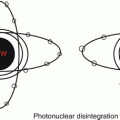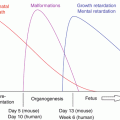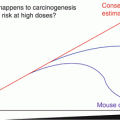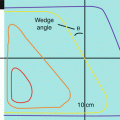, Foster D. Lasley2, Indra J. Das2, Marc S. Mendonca2 and Joseph R. Dynlacht2
(1)
Department of Radiation Oncology, CHRISTUS St. Patrick Regional Cancer Center, Lake Charles, LA, USA
(2)
Department of Radiation Oncology, Indiana University School of Medicine, Indianapolis, IN, USA
Where Does the Data Come from?
Human data
Atomic bombings in Japan:
Hundreds of thousands of exposures, but any inaccuracies or missing data from 1945 are likely to remain inaccurate or missing.
According to Hall and Giaccia, there were 403 accidents and 120 deaths from 1944 to 1999.
Radiation dose estimates are likely to be more accurate, especially in more recent disasters.
Patients were more likely to have received prompt medical care.
Animal data
Dogs and rhesus monkeys have similar radiosensitivity to humans.
Smaller animals are generally more radioresistant.
What About Intentional TBI?
The acute radiation syndrome described in the literature is based on very high dose rate exposures such as from nuclear bombs and criticality accidents.
Intentional TBI is administered at very low dose rates (5–10 cGy/min) and thus may have a different toxicity profile.
The clinical data shows significant dose-rate dependence for pulmonary toxicity (radiation pneumonitis).
Prodromal Radiation Syndrome
Characterized by neuromuscular and gastrointestinal symptoms.
Occurs after a dose of ≥1 Gy, but severity is dose-related.
Occurs within 5–15 min of acute exposure and can last for several days. Duration is also dose-related.
At a dose expected to be lethal in 50 % of subjects (LD 50 ):
~3–4 Gy without medical intervention.
Fatigability, anorexia, nausea/vomiting.
At supralethal dose (>8 Gy):
Immediate diarrhea, fever, hypotension.
If doses are known to be un-survivable, these patients should be provided with palliative care only.
Cerebrovascular Syndrome
Occurs after a dose of ~100 Gy.
Death within 24–48 h.
Characterized by disorientation, incoordination, shortness of breath, hypotension, loss of consciousness, seizures and death.
Believed to be caused by increased intracranial pressure due to permeability of cerebral blood vessels.
Un-survivable.
Gastrointestinal Syndrome
Stay updated, free articles. Join our Telegram channel

Full access? Get Clinical Tree








